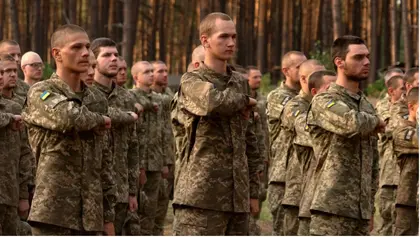The Ukrainian Parliament’s Committee on National Security, Defense, and Intelligence has reviewed all 4,269 amendments put forward to the government’s draft law on mobilization, according to a Telegram post by Yaroslav Zheleznyak, a Ukrainian deputy from the Holos party on Friday.
JOIN US ON TELEGRAM
Follow our coverage of the war on the @Kyivpost_official.
Still, according to Zheleznyak, this does not mean that the document is yet ready for its second reading.
“One could say that it is 100% ready, but no. The draft law still needs a few changes before it can be voted on during a second reading. Firstly, there will be another meeting [later on Friday] where additional committee amendments will be considered," Zheleznyak said.
"Secondly, the Committee's decision is required to approve the entire table [of amendments]. For now, the schedule for the approval of the table of amendments remains undecided,” he added.
Zheleznyak said he believes that the draft law will be submitted to the session hall for consideration within two weeks. “And I don't think anyone will be too late with the amendments.”
The new mobilization draft law is intended to address mobilisation issues. It passed its first reading on Feb. 12, which allowed amendments to be made to it. After the amendments are considered, it gets voted on a second time and then becomes a law or not.
However, some 4,300 amendments, most of them proposed by President Volodymyr Zelensky’s Servant of the People party, have been proposed and were holding up the process.

Ukrainian Soldier Escorting Conscripts Shot
There have been days when the parliamentary committee in charge of considering the mobilization draft law considered just one amendment per day. Yet, as witnessed at the last meeting of the committee 660 amendments were considered at once, European Solidarity party member Iryna Friz confirmed.
The proposed draft law lowers the conscription age from 27 to 25 and adds new penalties for those found to be draft dodging – including a significant increase in fines. It proposes to define more clearly who can be exempted from mobilization and who is responsible for carrying out the mobilization in conjunction with the TRCs – be it at the level of towns or regions.
Lawmakers also propose to resolve the problem of there being no limit on the amount of time a conscripted soldier serves.
The consensus is that those who’ve served 36 months continuously – with a year to a year-and-a-half on the front line – will be demobilized and returned home.
You can read more on the pending mobilization issues in Ukraine here.
You can also highlight the text and press Ctrl + Enter










